
-
Find the right food for your petTake this quiz to see which food may be the best for your furry friend.Find the right food for your petTake this quiz to see which food may be the best for your furry friend.Featured products
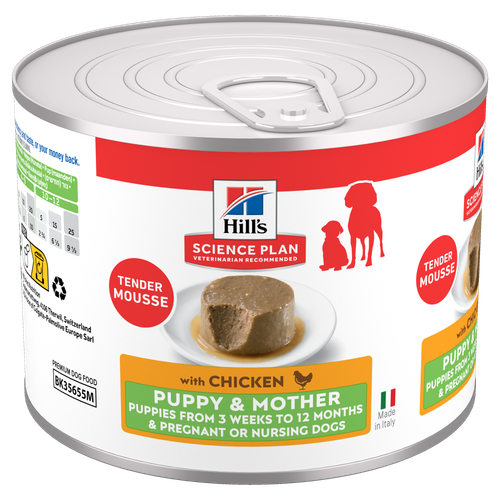 Puppy & Mother Tender Mousse Dog Food
Puppy & Mother Tender Mousse Dog FoodHill's Science Plan Puppy & Mother Tender Mousse Dog Food with Chicken is a complete premium pet food for puppies and pregnant or nursing dogs. Formulated with chicken and other specially selected ingredients, including minerals and antioxidants to support gut health and optimal growth, it comes in a soft mousse texture they'll love.
Shop Now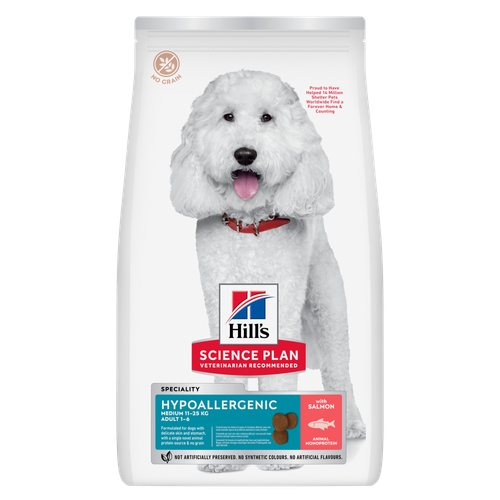 Hypoallergenic Medium Adult Dog Food
Hypoallergenic Medium Adult Dog FoodScience Plan Hypoallergenic Medium Adult dog food with Salmon is a gentle, science-led formula crafted for dogs with food sensitivities. Made with carefully selected, high-quality novel proteins and no grains, it’s tailored to minimise common triggers that can lead to skin and digestive discomfort.
Shop Now Perfect Weight Small & Mini Adult Dog Food
Perfect Weight Small & Mini Adult Dog FoodHill's Science Plan Adult Small & Mini Dog Food with Turkey is a complete premium pet food for adult small dogs from 1 year old that are prone to weight gain or slightly overweight. This deliciously smooth mousse is formulated to deliver the appropriate amount of energy to support weight maintenance in adult dogs.
Shop NowFeatured products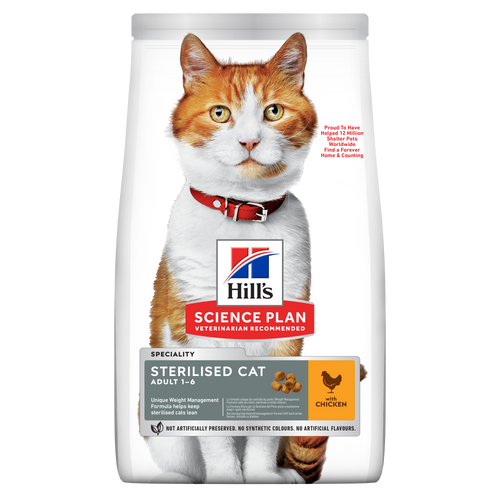 Sterilised Adult Cat Food
Sterilised Adult Cat FoodHill's Science Plan Adult Sterilised Cat Dry Food with Chicken is specially formulated with ActivBiome+ Multi-Benefit Technology. It is a precisely balanced nutrition, tailored to meet the needs of sterilised cats, to help keep sthem lean & healthy.
Shop Now Oral Care Adult Cat Food
Oral Care Adult Cat FoodHill's Science Plan Oral Care Adult Cat Food with Chicken contains clinically proven kibble technology to reduce plaque & tartar build up.
Shop Now Hypoallergenic Dry Cat Food
Hypoallergenic Dry Cat FoodHILL'S SCIENCE PLAN Hypoallergenic Adult cat food with egg & insect protein is a complete pet food for adult cat 1–6 years old. It's formulated for cats with delicate skin and stomach, with limited high quality novel protein sources & no grain.
Shop Now -
Dog
- Dog Tips & Articles
-
Health Category
- Weight
- Food & Environmental Sensitivities
- Urinary
- Digestive
- Joint
- Kidney
-
Life Stage
- Puppy Nutrition
- Adult Nutrition
- Senior Nutrition
Cat- Cat Tips & Articles
-
Health Category
- Weight
- Skin & Food Sensitivities
- Urinary
- Digestive
- Kidney
-
Life Stage
- Kitten Nutrition
- Adult Nutrition
Featured articlesTips for Working From Home With a PetGet helpful information on how to get all of your work done while keeping your dog or cat entertained when working from home.
Read More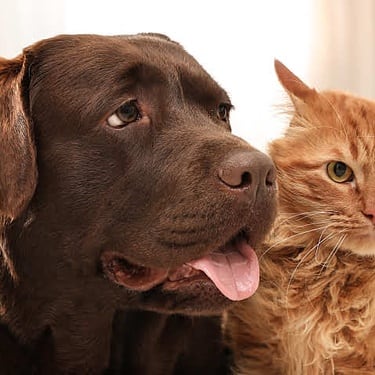 What Cleaning Products Are Safe for Pets?
What Cleaning Products Are Safe for Pets?Learn which cleaning product ingredients can be hazardous for dogs & cats, which alternatives are safer and tips for using cleaning products around pets.
Read More Tips For Mixing Wet And Dry Pet Food
Tips For Mixing Wet And Dry Pet FoodDiscover tips for mixing wet and dry pet food to ensure balanced nutrition and variety for your pet. For comprehensive feeding advice, visit Hill's Pet UK.
Read More -


If your kitty is snacking on grass, she could be suffering from tummy troubles, but can cats eat grass when they're feeling just fine? And why do cats eat grass in the first place?
Why Do Cats Eat Grass?
Cats are "obligate carnivores," meaning they require a steady diet of meat to thrive. They don't need a salad with their chicken dinner, and their bodies just don't have the proper enzymes necessary for properly processing vegetation. But, can cats eat grass? The short answer is "yes." Your furry friend might enjoy crunching on some safe greens (more on that later), but choosing the right cat food that provides necessary nutrients is more important than serving up a plate of freshly-cut grass.
As it turns out, cats may munch on grass for some of the same reasons that people incorporate greens into their own diets. Some, like Animal Planet, theorize that cats eat the green stuff because it aids in the removal of nondigestible materials, like fur, assists in relieving constipation, and provides them with nutrients, like folic acid. Chewing on grass or plants also can alleviate stress, according to Vetstreet.
Digestive Needs
Although experts do not refer to grass as being necessary for cats' digestive system, reports Animal Planet, cats may seek out soft blades of grass "to settle their stomachs, much as humans pop an antacid tablet." If your cat overeats or is blocked up, her instinct is to sweep all that out with the fiber found in vegetation. Have you ever noticed your kitty chewing on the toilet paper roll? The need for fiber also motivates this behavior — she's seeking relief, not trying to waste household goods.
Cats require folic acid (vitamin B9) to aid digestion and support cell growth. Kittens get their required dose of folic acid from their mother's milk, but if a cat doesn't get enough of it, notes Animal Planet, she can develop anemia. Because folic acid is present in grass juice, some researchers speculate that cats undertake a quest for grass to supplement this deficiency, but there is no definitive evidence that they do so — and the cats themselves aren't talking. If you suspect that your furry friend is coping with a nutritional deficiency, speak with your veterinarian before trying to treat the issue on your own.
Anxiety
Similar to their pet parents, cats partake in what's called "stress eating" or "emotional eating," causing a kitty to eat not to relieve hunger pangs but to relieve anxiety or to satisfy an oral fixation. When stress hits, she needs an outlet: "A cat that constantly eats grass or plants also may be exhibiting signs of a displacement behavior," says Vetstreet. "Some cats may exhibit over-grooming or excessive vocalization when they are anxious, while other cats may try to engage in a different activity to soothe themselves, such as finding something to chew on." If you notice that your fur baby is chewing on grass or household plants excessively or shows other signs of stress or anxiety, such as withdrawing from family members and displaying aggressive behavior, get in touch with your vet to see how you can help your kitty.


Tasty Tips
What to Look For
So, why do cats eat the green stuff? Well, grass offers them relief from a variety of issues. This relief comes about most commonly in the form of hairballs, familiar to pet parents everywhere. Some cats throw up after eating because of other factors, such as changes in their diet, but if you know your cat has ingested grass, expect it to come back out again.

Because they lack the proper enzymes to digest it, cats who eat grass will then vomit that grass, along with the hair and/or other indigestible items. However, "when the fur moves deep into the digestive tract," explains PetMD, "kitty needs a little help to break it down and pass it out the other end." In other words, if the blades of grass she consumed don't come back up as hairballs, your cat will expel them in her litter box.
Prior to being wholly domesticated, cats that foraged for food in the wild (and as big cats, like lions and tigers, still do) oftentimes ingested the entirety of their prey — bones, hair, and all — which rendered vomiting a necessary part of the digestive process. Instinctively, even the most pampered kitty knows that chewing on grass will remove the problematic waste matter in her digestive system, one way or another.
Safety and Prevention
As noted above, if your cat has consumed grass, there are a few ways it will pass through her system: hairball, stool or a combination of both. If she enjoys chomping on a few blades of grass periodically and easily expels the plant matter, you needn't worry too much.
However, the Independent Ireland reports, sometimes the grass can "end up stuck at the back of the nose, inside the nasal chambers, causing fits of sneezing. This is more common in cats than dogs. When it happens, the grass needs to be physically removed." If this occurs, then contact your vet right away for safe removal.
Untreated, plain grass makes a nice salad bar for your feline friend, but if she consumes grass or other plant matter (indoor or outdoor) that has been treated with pesticides or herbicides and/or is naturally toxic to animals, it's important to seek medical attention for her right away.
Reactions to ingestion of toxic vegetation range from mild to severe, including death; therefore, it's crucial to know which grasses and plants are safe for your kitty. Keep in mind that toxic grasses, plants, and flowers, such as lilies, can be found in many popular floral bouquets. The American Society for the Prevention of Cruelty to Animals® provides a comprehensive list of toxic and non-toxic plants to cats.
The safest option is to keep your cat indoors and remove all toxic plants from your home. If your cat does explore the great outdoors, provide her with a secure collar with an ID tag.
Now that you know the answer to, "Why do cats eat grass?" you also can grow your own little patch of grass by planting wheat-berry seeds, as described by Petcha, so that your indoor kitty has her personal, safe lawn on which to graze.


Christine O'Brien is a writer, mom, and long-time cat parent whose two Russian Blues rule the house. Her work also appears in Care.com, What to Expect, and Fit Pregnancy, where she writes about pets, pregnancy, and family life. Find and follow her on Instagram and Twitter @brovelliobrien.
Related products

Hill's Science Plan Oral Care Adult Cat Food with Chicken contains clinically proven kibble technology to reduce plaque & tartar build up.

HILL'S SCIENCE PLAN Hypoallergenic Adult cat food with egg & insect protein is a complete pet food for adult cat 1–6 years old. It's formulated for cats with delicate skin and stomach, with limited high quality novel protein sources & no grain.
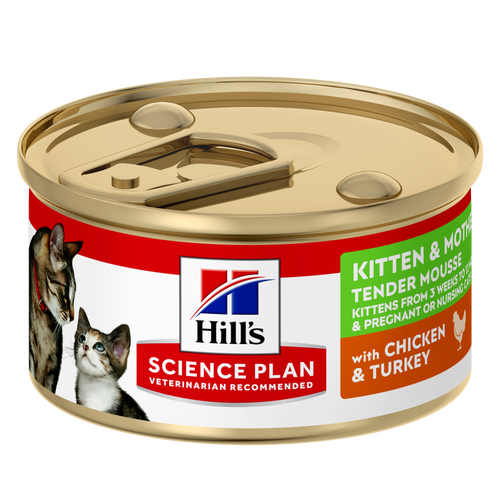
Hill's Science Plan Kitten & Mother Tender Mousse Cat Food with Chicken & Turkey is a complete premium pet food for kittens from weaning until 1 year old and for pregnant and nursing cats. Formulated with chicken, turkey and other specially selected ingredients to support gut health and optimal growth. It comes in a soft mousse texture they'll love.

Hill's Science Plan Adult Sterilised Cat Dry Food with Chicken is specially formulated with ActivBiome+ Multi-Benefit Technology. It is a precisely balanced nutrition, tailored to meet the needs of sterilised cats, to help keep sthem lean & healthy.
Related articles
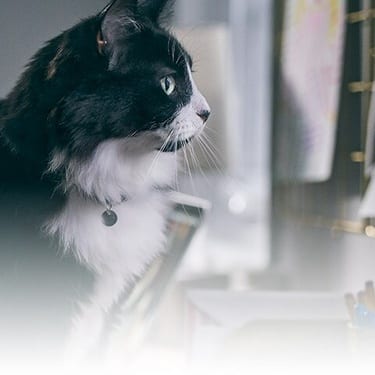
While hairballs are a common occurrence of cats, there are steps you can take to help them manage their problem and keep them healthy.
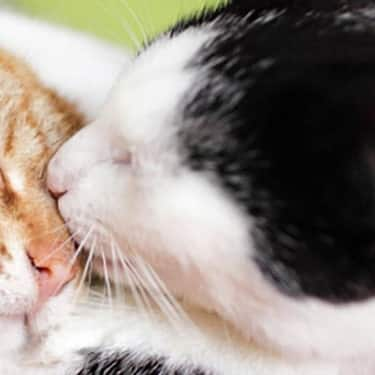
Learn the different factors that might be contributing to your cat's weight gain, and how bigger doesn't always mean better.
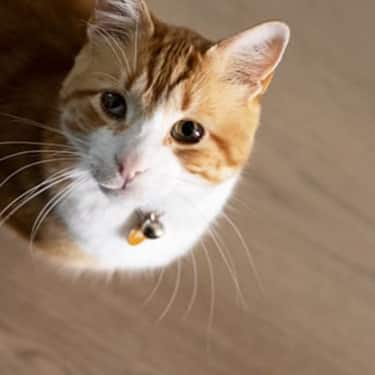
Learn how to spot the signs of a skin condition in your cat and the steps to take for their wellbeing. For comprehensive care advice, visit Hill's Pet.
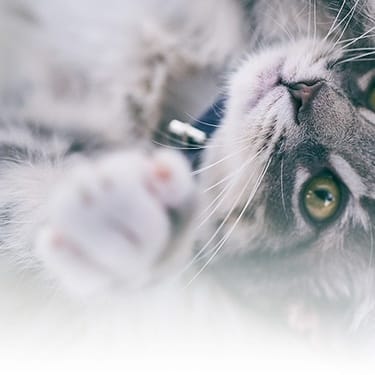
South African vets say more than half the patients they see are overweight. Learn more about managing your cat’s weight.

Put your cat on a diet without them knowing
Our low calorie formula helps you control your cat's weight. It's packed with high-quality protein for building lean muscles, and made with purposeful ingredients for a flavorful, nutritious meal. Clinically proven antioxidants, Vitamin C+E, help promote a healthy immune system.
Put your cat on a diet without them knowing
Our low calorie formula helps you control your cat's weight. It's packed with high-quality protein for building lean muscles, and made with purposeful ingredients for a flavorful, nutritious meal. Clinically proven antioxidants, Vitamin C+E, help promote a healthy immune system.


